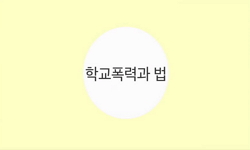이 글은 2014년 12월 20일(토) 한국법사학회 제110회 정례학술발표회에서 미완성된 메모를 가지고 발표한 것에 약간의 살을 붙여서 작성한 것이다. 따라서 이 글은 본격적인 학술논문이 아니며,...
http://chineseinput.net/에서 pinyin(병음)방식으로 중국어를 변환할 수 있습니다.
변환된 중국어를 복사하여 사용하시면 됩니다.
- 中文 을 입력하시려면 zhongwen을 입력하시고 space를누르시면됩니다.
- 北京 을 입력하시려면 beijing을 입력하시고 space를 누르시면 됩니다.
https://www.riss.kr/link?id=A100970281
- 저자
- 발행기관
- 학술지명
- 권호사항
-
발행연도
2015
-
작성언어
Korean
-
주제어
기초법 ; 로마법 ; 로마법 강의 ; 로마법 수업 ; 법사학 ; 법학교육 ; 법학전문대학원 ; Law school ; Legal education ; Legal history ; Roman law ; Roman law lecture
-
등재정보
KCI등재
-
자료형태
학술저널
-
수록면
7-39(33쪽)
-
KCI 피인용횟수
0
- DOI식별코드
- 제공처
-
0
상세조회 -
0
다운로드
부가정보
국문 초록 (Abstract)
이 글은 2014년 12월 20일(토) 한국법사학회 제110회 정례학술발표회에서 미완성된 메모를 가지고 발표한 것에 약간의 살을 붙여서 작성한 것이다. 따라서 이 글은 본격적인 학술논문이 아니며, 그간의 필자의 강의 경험을 보고하고, 또 어떤 의미에서는 교육담당자로서의 한계와 고충을 고백하는 성격의 글이다. 발표 때에 비하여 내용적으로 크게 덧붙여진 것은 없지만, 그때 설문만 제시하고 그에 대한 답안은 제시하지 않았던 것을 모범답안과 함께 실었다는 점에서는 보완된 것이다. 이렇게 한 이유는 이 글이 단순히 교육 현황에 대한 보고에 그치지 않고 법학전문대학원에서 로마법이 어떤 방식으로 다루어지고 있는가에 대한 예시적 사례를 제공하려는 바람에서이다. 로마법 공부가 현행법, 특히 현행 민법을 공부하는 데 어떤 도움이 될 수 있는가를 보여주기 위해서 모범답안에서 의식적으로 현행 민법에 대한 언급을 적절히 배합하였다. 로마법의 후예로서 많은 경우 그 법리와 대동소이한 모습을 보이므로 현행법을 지시하는 것이 결코 장식적이거나 단순한 비교법적 흥밋거리에 그치는 것이 아님을 보여주고도 싶었다. 로마법의 교육적 가치에 대한 공유된 인식에도 불구하고 전 세계적으로 로마법 교육은 위기에 처해 있다. 특히 우리의 경우 법학전문대학원 출범 후 기초법학 분야는 예상했던 대로 침체 일로에 들어선 인상이다. 이 글을 계기로 斯界의 同學들이 현 상황에 대한 문제의식과 해결의 실마리라도 함께 할 수 있기를 희망한다.
다국어 초록 (Multilingual Abstract)
This paper is an amplified version of my presentation on December 20th, 2014 before the colleagues of the Korean Society of Legal History. The presentation style is preserved in accordance with its character as a report of personal teaching experience...
This paper is an amplified version of my presentation on December 20th, 2014 before the colleagues of the Korean Society of Legal History. The presentation style is preserved in accordance with its character as a report of personal teaching experiences in Roman law at my law school. The curriculum of my school takes into account the basic fields of law like Roman law, legal history, philosophy of law, etc. as a group out of which a student must hear one of his free choice. In that I am essentially in a good position in comparison with the colleagues of other schools. However, the situation seems in reality not so different as may appear at first sight. As most of the scholars predicted, the balance-sheet shows that since the introduction of the law school system Roman law plays even meager role than ever before evidently on account of an one-sided orientation to the national bar examination of the law students as a whole. Besides, there exist as before continuing difficulties in procuring learning and teaching materials. The most urgent task is to provide with reading materials in Korean. Not to mention the original legal texts of the Romans which are written either in Latin or in Greek, available materials are mostly written in European languages not accessible for the most of Korean jurists. For all that, I present selected examples from my lectures to help enable the Korean public to get an impression Roman law conveys even today. The prospect for the future of Roman law is indeed not bright, but an ideal paradigm for the theory of decision-making and of legal reasoning the classical jurists’ achievements offer can, as Franz Wieacker once ascertained, still be put to use in our society today. It is hoped that this paper evokes intensified interest and dedication to the issue on the side of the legal scholars and practical jurists alike and helps overcome the difficulties confronting us in the near future.
목차 (Table of Contents)
- [국문 요약]
- Ⅰ. 수업 현황
- Ⅱ. 교육 목표
- Ⅲ. 교재와 수업자료
- Ⅳ. 수업의 진행
- [국문 요약]
- Ⅰ. 수업 현황
- Ⅱ. 교육 목표
- Ⅲ. 교재와 수업자료
- Ⅳ. 수업의 진행
- Ⅴ. 과제물 및 시험(중간시험, 기말시험)
- Ⅵ. 회고와 반성
- Ⅶ. 향후의 과제
- 〈Abstract〉
동일학술지(권/호) 다른 논문
-
- 한국법사학회
- 한인섭(In Sup Han)
- 2015
- KCI등재
-
- 한국법사학회
- 전병무(Jeon, Byung-moo)
- 2015
- KCI등재
-
- 한국법사학회
- 심희기(Hui-gi Sim)
- 2015
- KCI등재
-
- 한국법사학회
- 한상돈(Han, Sang Don)
- 2015
- KCI등재
분석정보
인용정보 인용지수 설명보기
학술지 이력
| 연월일 | 이력구분 | 이력상세 | 등재구분 |
|---|---|---|---|
| 2028 | 평가예정 | 재인증평가 신청대상 (재인증) | |
| 2022-01-01 | 평가 | 등재학술지 유지 (재인증) |  |
| 2019-01-01 | 평가 | 등재학술지 유지 (계속평가) |  |
| 2016-01-01 | 평가 | 등재학술지 유지 (계속평가) |  |
| 2012-01-01 | 평가 | 등재 1차 FAIL (등재유지) |  |
| 2009-01-01 | 평가 | 등재학술지 선정 (등재후보2차) |  |
| 2008-01-01 | 평가 | 등재후보 1차 PASS (등재후보1차) |  |
| 2007-01-01 | 평가 | 등재후보학술지 유지 (등재후보2차) |  |
| 2006-01-01 | 평가 | 등재후보 1차 PASS (등재후보1차) |  |
| 2005-01-01 | 평가 | 등재후보학술지 유지 (등재후보1차) |  |
| 2004-01-01 | 평가 | 등재후보학술지 유지 (등재후보1차) |  |
| 2003-01-01 | 평가 | 등재후보학술지 선정 (신규평가) |  |
학술지 인용정보
| 기준연도 | WOS-KCI 통합IF(2년) | KCIF(2년) | KCIF(3년) |
|---|---|---|---|
| 2016 | 1.1 | 1.1 | 0.94 |
| KCIF(4년) | KCIF(5년) | 중심성지수(3년) | 즉시성지수 |
| 0.81 | 0.76 | 1.284 | 0.33 |




 KCI
KCI DBpia
DBpia


